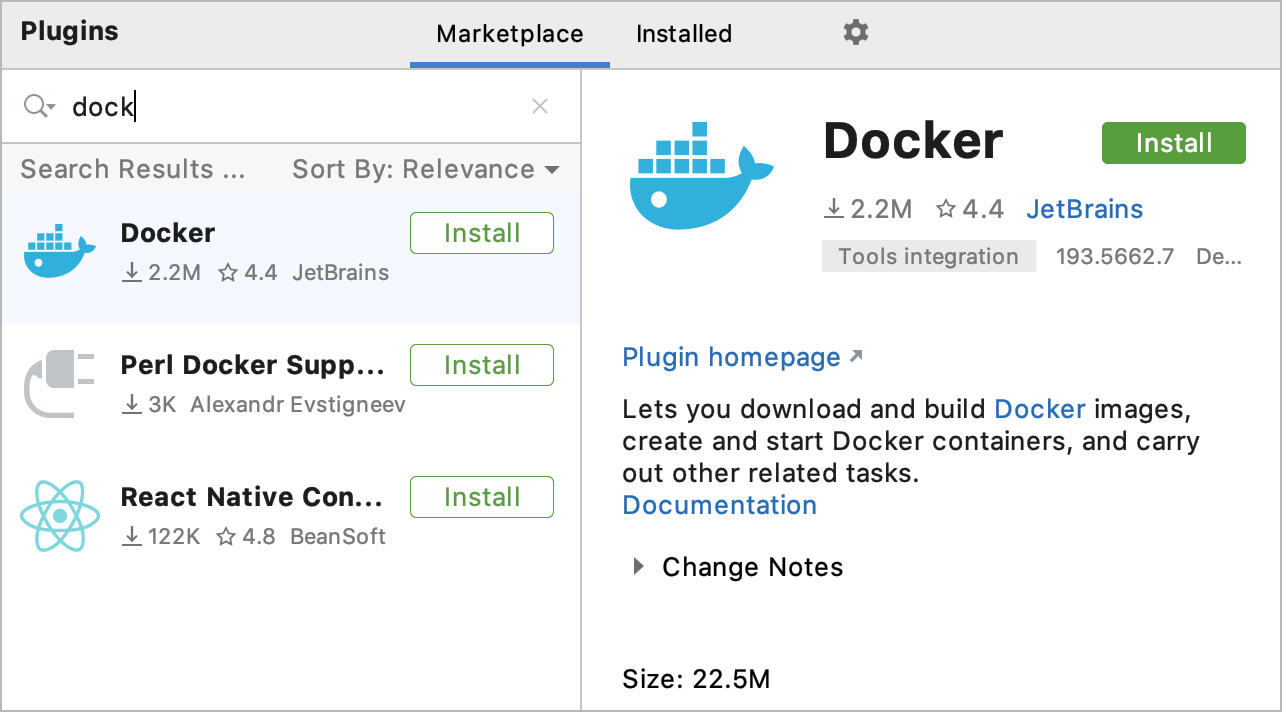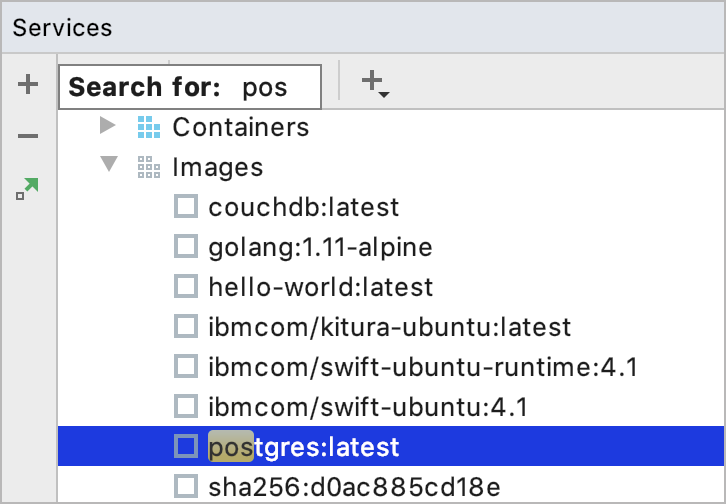Docker
Last modified: 28 March 2023Docker is a tool for deploying and running executables in isolated and reproducible environments. This may be useful, for example, to test code in an environment identical to production. With Docker, you can run different versions of operating systems, programming languages, web servers, database applications, and so on. This helps you to test the backend part of your application avoiding side effects from your current macOS environment.
AppCode integrates the Docker functionality and provides assistance for creating Docker images, running Docker containers, managing Docker Compose applications, using public and private Docker registries, and much more directly from the IDE.
Install the Docker plugin
This functionality relies on the Docker plugin, which you need to install and enable.
Press Ctrl+Alt+S to open the IDE settings and select Plugins.
Open the Marketplace tab, find the Docker plugin, and click Install (restart the IDE if prompted).

Install and run Docker
Install and run Docker as described in Docker documentation.
tip
AppCode supports alternative Docker daemons: Colima and Rancher Desktop (with the
dockerdengine).
Connect to the Docker daemon
Press Ctrl+Alt+S to open the IDE settings and select Build, Execution, Deployment | Docker.
Click
to add a Docker configuration and specify how to connect to the Docker daemon.
The connection settings depend on your Docker version and operating system.
The Connection successful message should appear at the bottom of the dialog.

note
The Path mappings table is used to map local folders to corresponding directories in the Docker virtual machine's file system. Only specified folders will be available for volume binding.
Open the Services tool window (View | Tool Windows | Services or Alt+8), select the configured Docker connection node
and click
, or select Connect from the context menu.

To edit the Docker connection settings, select the Docker node and click
on the toolbar, or select Edit Configuration from the context menu.
You can also click
and select Docker Connection to add a Docker connection directly from the Services tool window. If you have Docker contexts configured, you can select Docker Connections from Docker Contexts to add the corresponding connections.
Once you connect to the Docker daemon, you can use the Services tool window (View | Tool Windows | Services or Alt+8) to manage everything related to Docker, for example: pull and push images, create and run containers, and scale Docker Compose services. As with other tool windows, you can start typing the name of an image or container to highlight the matching items.

For more information, see the section about Docker in Services tool window.
Thanks for your feedback!